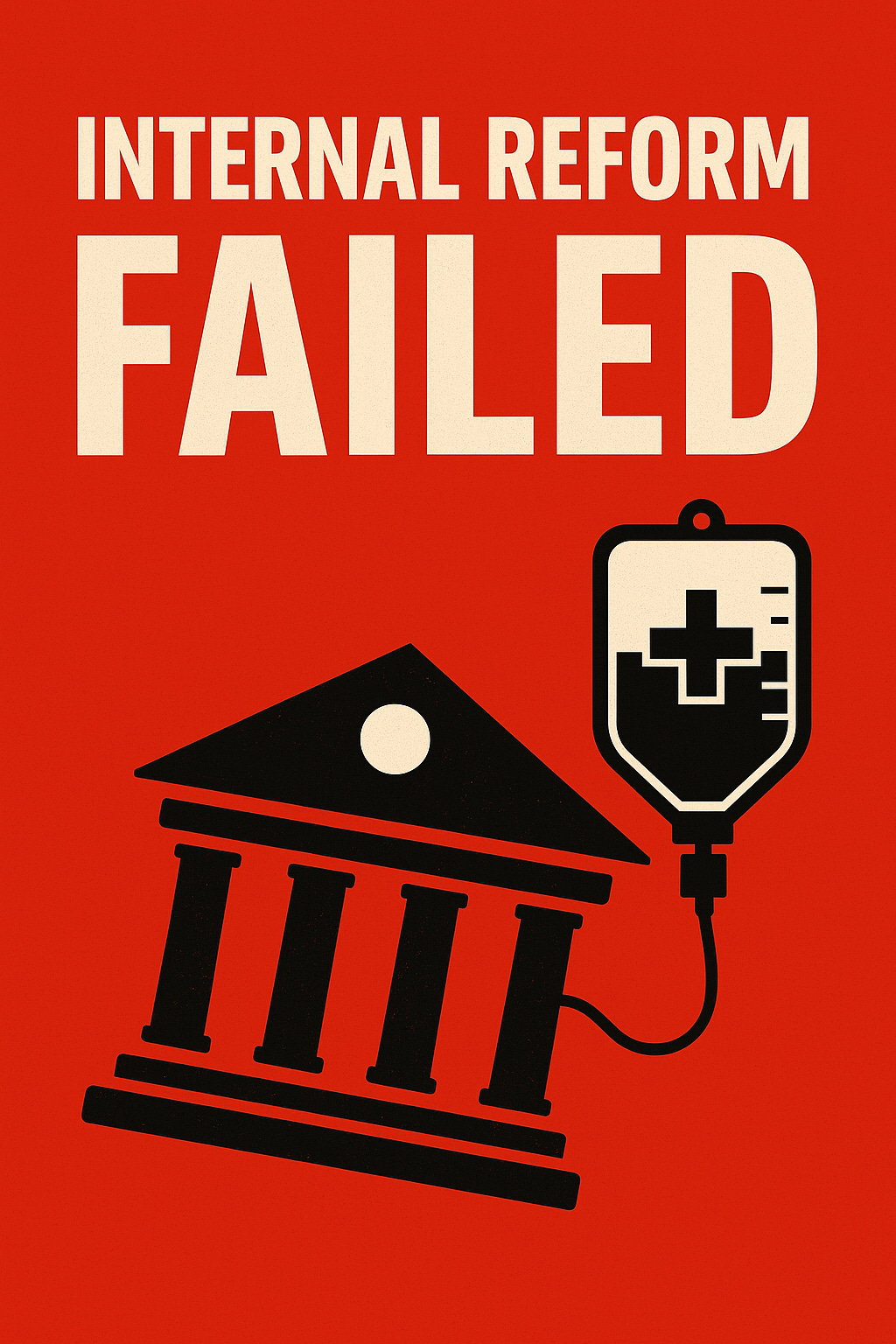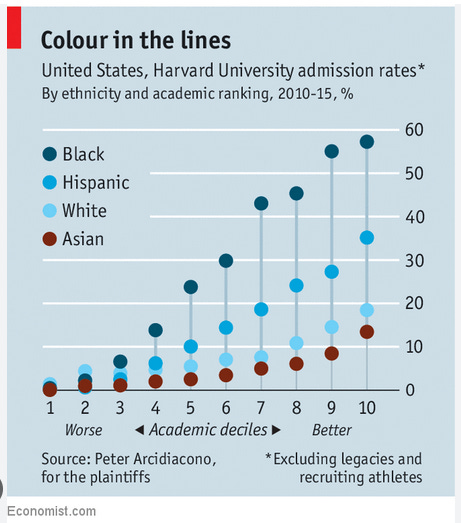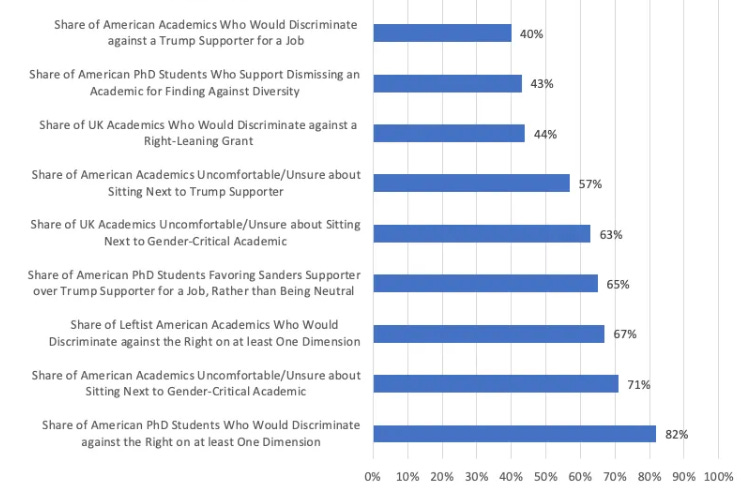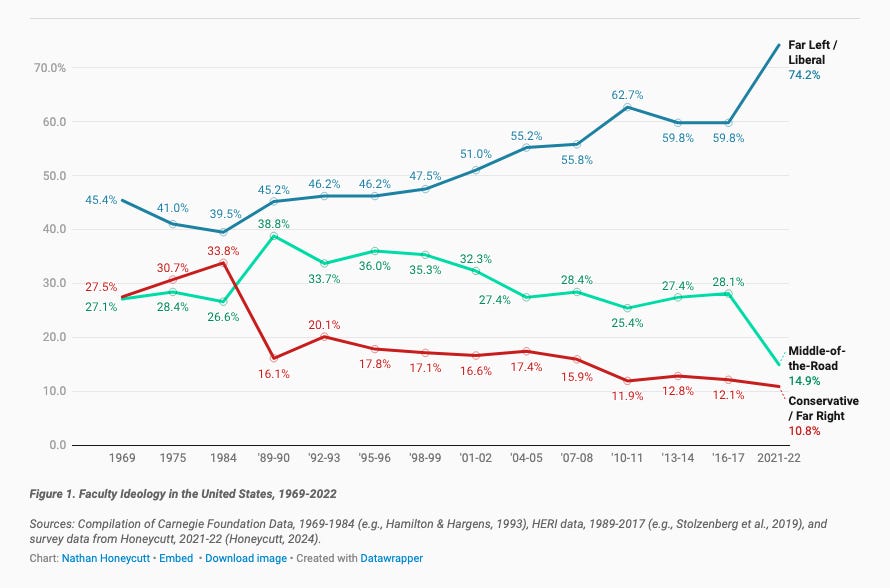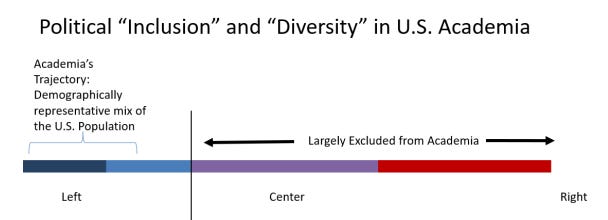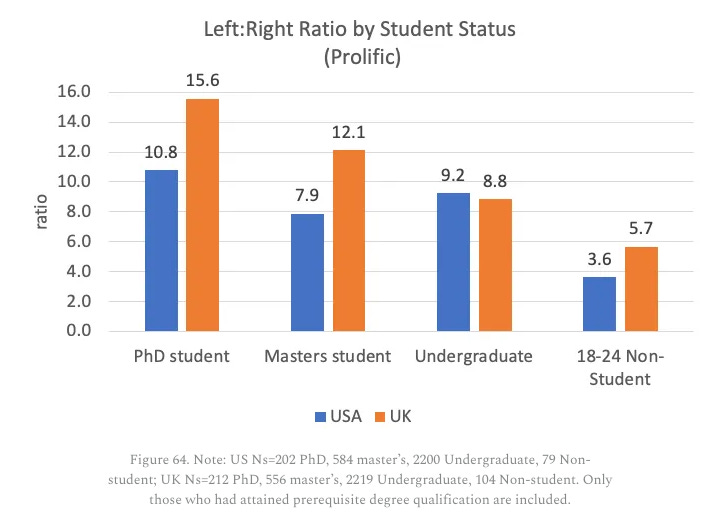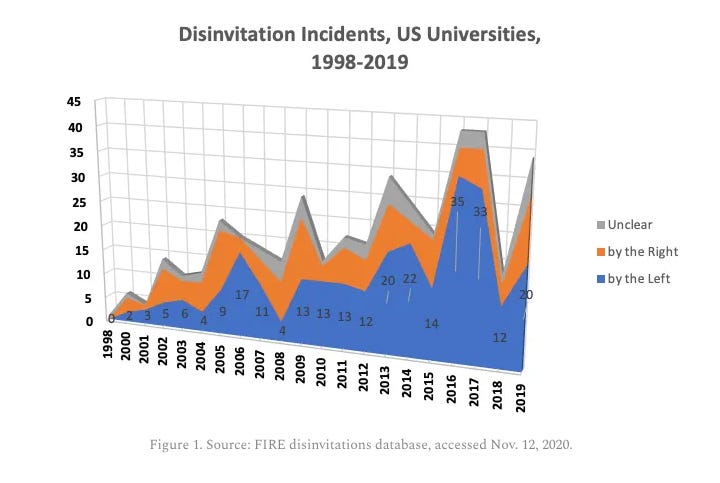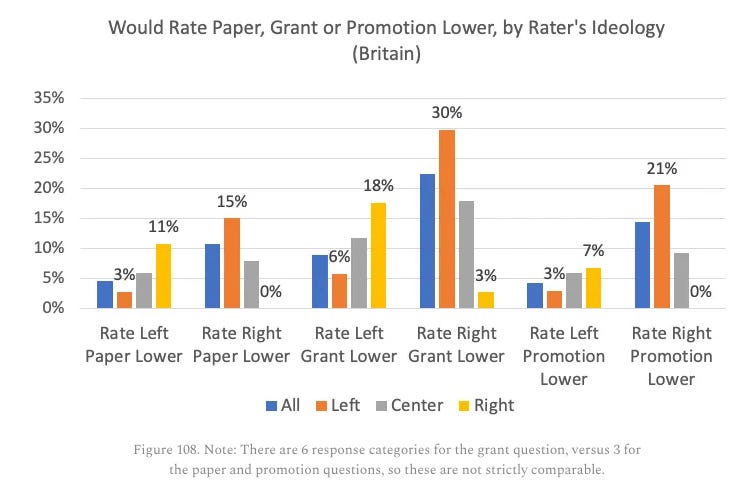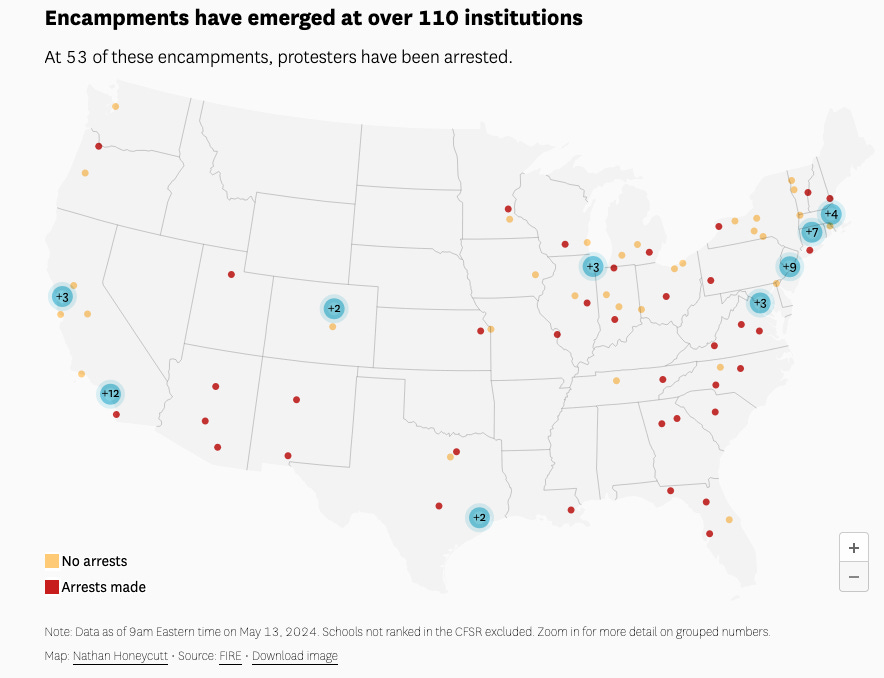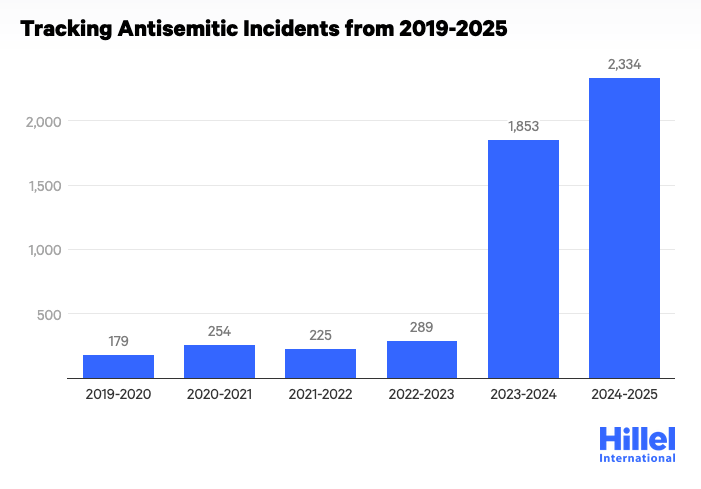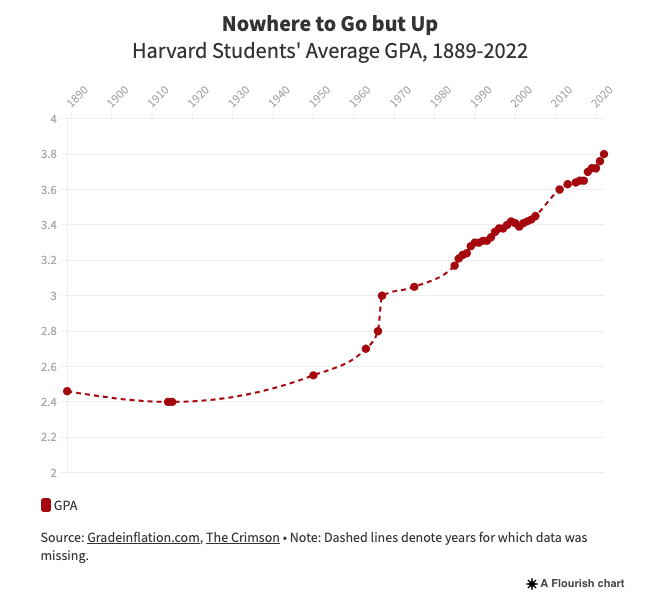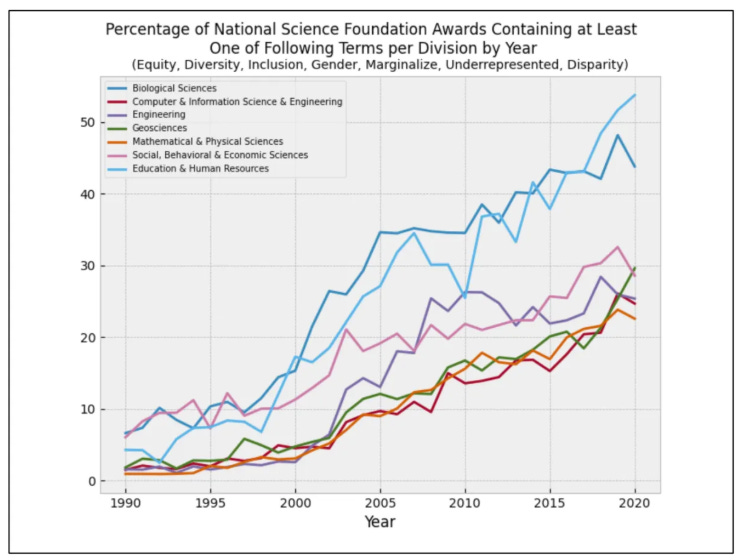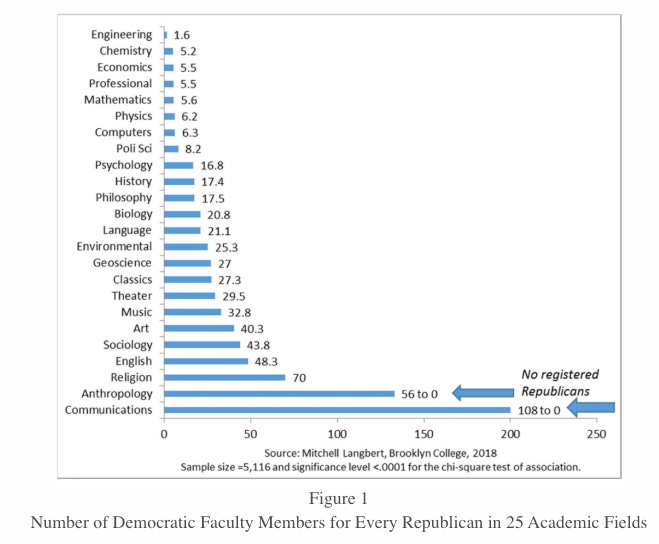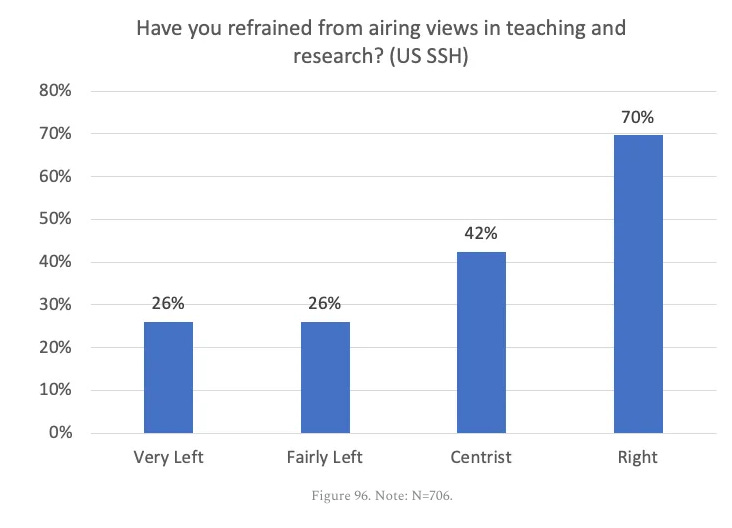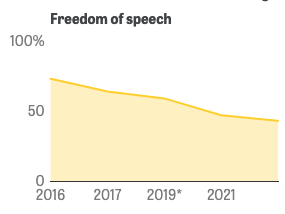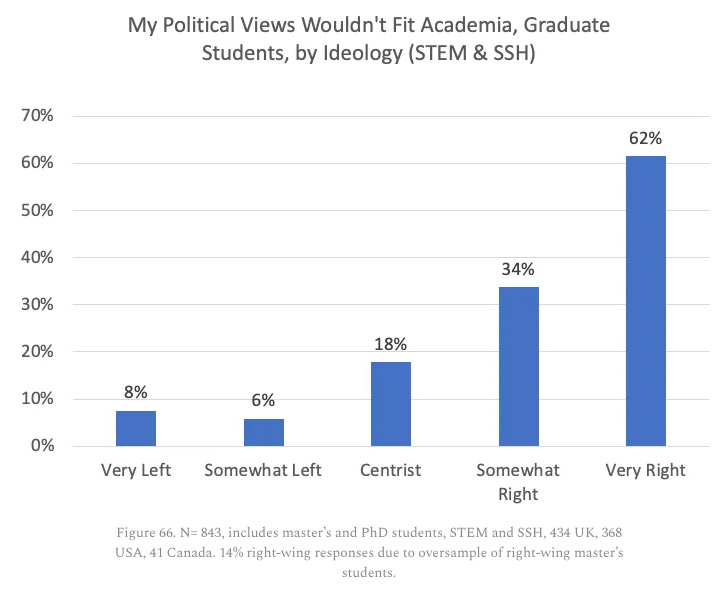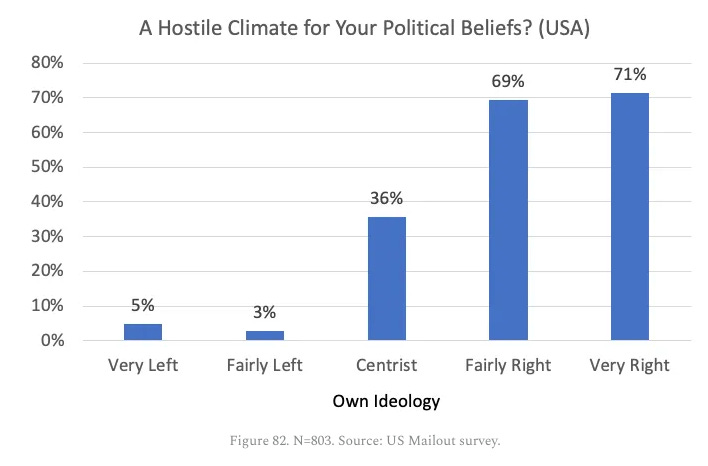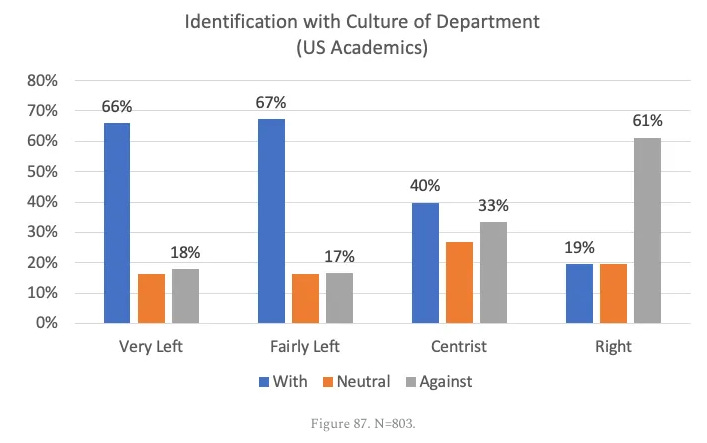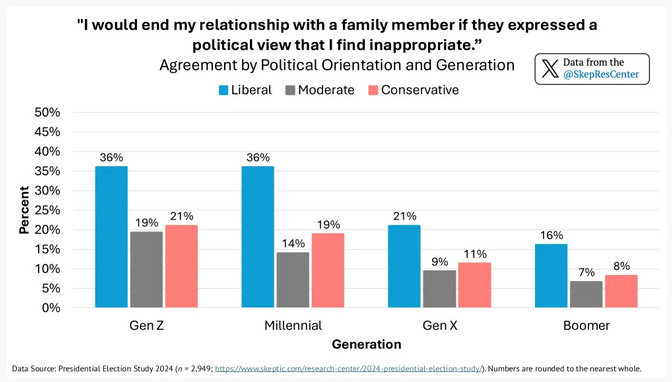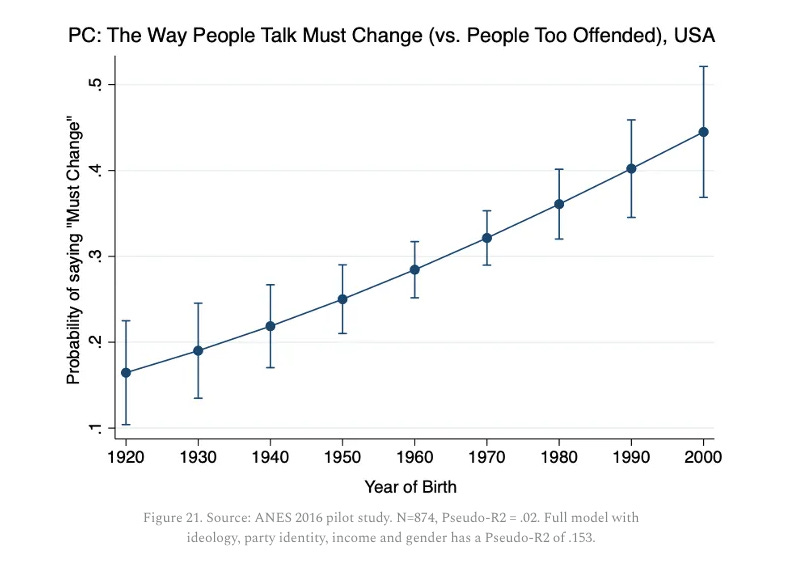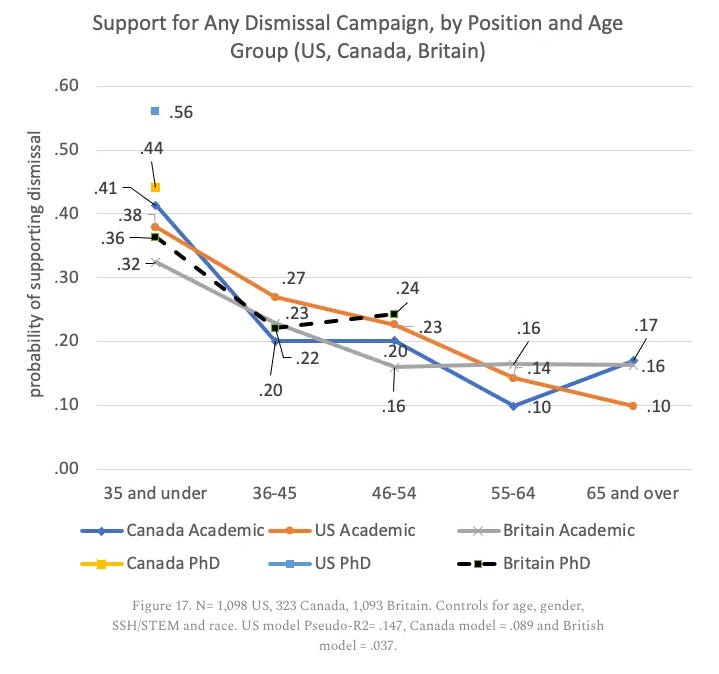From Heterodox to Helpless
Why Internal-Reform Is Not Enough, and the Case for a Veritas-Narcan for Higher Education
Can universities be trusted to reform internally, or is external pressure required?
Step back, and imagine an analogy: your local police department has a bunch of problems with its professionalism, and there is tons of evidence of this.
Now ask yourself this hypothetical question: Is the department more likely to reform internally without external accountability, or with external pressure?
OK. Now why would universities be any different? Human nature is the same. When over-using a parking meter, how often do people call the police to ask for a parking ticket? Did the Catholic Church undergo a true self-reformation? Do corporations keep as meticulous accounting records when they are never audited externally? Lacking external pressure and accountability, how likely is it that a school of nutrition whose faculty is 97% vegetarian will internally reform to allow the views of carnivores and omnivores to be represented in teaching and research, and to ensure they are not discriminated against in admissions and hiring?
Similarly, scholars who benefit from their ideological monoculture in academia have little reason to challenge the system that feeds and rewards them. Among Harvard faculty, there are approximately 5540% more liberals than conservatives. People listen to academics because they are supposed to be competent and good people. Admitting to internal pedagogical, intellectual, and moral problems, and fixing them, would undermine their own authority. That would spoil the party. Why would a university leader voluntarily give up their brittle prestige, moral self-image, and intellectual comfort? There is an inherent conflict of interest for insiders to reform. Change from within is a losing bet with those psychological incentives.
In addition, there is an ironic revulsion among too many academics to being reformed by external parties they deem intellectually and morally inferior. Today’s academics — especially in the social sciences and humanities — are rarely known for their humility. Too often, they are activists first, and have a sanctimonious drive to reform the world in their own image (rather than study and understand the world in a disinterested manner), yet also tend to view the median, patriotic, common-sense conservative American with disdain. You hear it at the end of a joke in class. Thus, the idea of their own house being cleaned up by external less credentialed forces, especially democratically elected officials (sorry, I meant "populists"), is an unacceptable ego threat.
Credentialed academics, being highly linguistic creatures, also mistake discourse and discussion for progress in the non-propositional world; they misrecognize the ways of logic for the social logic of how things work and get done in the world. Conferences, white papers, op-eds, blogs, and eminently articulate statements do not change the world, as much as material incentives and public accountability. The graduate seminar room is not the president’s office. Politics is not the same as philosophy. That is why DEI has been inhibited and thwarted more in the last 12 months than it has in the last 12 years combined.
On top of that, the epistemology behind many internal reform efforts is too relativistic and pluralistic, and therefore powerless to stand up to dominant ideologies like DEI or critical constructivism (wokeism). These secular religions will tend to outcompete moderates, and will only be displaced by stronger frameworks that actually believe in truth and goodness, not neutral hand-wringing. Internal reformers who are militantly agnostic about the university’s teleology, charmingly harmless and inoffensive, allergic to moral judgments, and more focused on being agreeable than truthful, are not likely to succeed in substantive reform.
Nor have they tended to in the past. Failures of academic freedom have persisted for many decades despite years of internal warning. For decades, universities have resisted or attempted creative work-arounds to bans by courts of speech codes and affirmative action. Many of the reforms being demanded from the outside now are things elite universities themselves admit they should have implemented decades ago, but never got around to, and were actively resisted until external pressure and shame arrived. It reminds me of a person with worsening gingivitis waiting decades to get surgery and a humiliating lecture from their dentist, and finally getting dragged in by a spouse.
Universities tend not to be self-correcting ecosystems. Like corporations before the Sarbanes-Oxley Act (mandating financial record reporting), or police departments before federal consent decrees, universities tend to protect and reward their own insiders for maintaining things as they are; and insiders are, ironically, the very people who are supposed to be responsible for change! That is a conflict of interest; it isn’t a reform recipe consistent with human nature.
At this stage of self-destruction, external accountability isn’t ideological intrusion or tyranny, it’s institutional triage.
***
What about Heterodox Academy?
I have great respect for Heterodox Academy and its mission, indeed I have been a member of Heterodox Academy since its inception, and its leader, John Tomasi, is someone I know and admire (I was one of his teaching assistants when he was at Brown). I believe Heterodox Academy has contributed important ideas and initiatives to the conversation, and I have even contributed to their blog.
Yet, respectfully, I think Heterodox Academy is incorrect to oppose the Manhattan Statement on Higher Education, while preferring “internal reform” and “insider attention and action”.
Why?
A 10 year analysis of insiders shows they have been ineffective: internal reform efforts, while noble, have as an empirical matter largely failed to produce meaningful structural change over the last decade. Despite increasing awareness of the challenges to free inquiry and institutional neutrality over the past 10 years (the tenure of Heterodox Academy), the prevailing culture has within most elite universities become more, not less, resistant to academic freedom, civil discourse, ideological diversity, open inquiry, and truth seeking. Things would likely have been even worse without the internal reform efforts of Heterodox Academy. But zoom out and see the larger trends over a decade.
The evidence is overwhelming and hard to deny: things have been worsening, not improving, over the past 10 years since Heterodox Academy was formed:
in 2024: 83% of US academics agree “that free speech was more limited than ten years ago”. Internal reform hasn’t made free speech increase over time.
Speech codes and bureaucratic restrictions on expression got worse over the past decade (in 2024: “85% of top colleges have restrictive speech code…the number of schools with the worst polices is increasing”)
DEI loyalty oaths in hiring and promotion were hardly heard of 20 years ago, and since then became widespread. Internal reform did little to fix this. It got so bad that in 2017, “UC Berkeley search committee rejected 600 of over 800 applicants based solely on their DEI statements”. Harvard dribbled out a ban of DEI statements in one of its schools on its own (Faculty of Arts and Sciences), but as far as I know, untouched until external pressure were the dozens of remaining schools, centers, academic hospitals, and related centers.
Violations of civil rights law and meritocracy in admissions was never fixed by internal reform for decades, and was only called out by outside accountability from the Supreme Court (Students for Fair Admissions v. Harvard, 2023). Students were given hundreds of percentage points in advantages, and penalties, depending on their race.
Non-meritocratic hiring and promotion of faculty has not improved in the past decade. For example, from 2013-2023, patterns in faculty hiring at Harvard suggest the same kind of unequal standards and DEI quotas that discriminate against Asian American and European Americans that have been exposed in selecting students in admissions also exist in selecting faculty. A 2021 study found over 4 in 10 US and Canadian academics would not hire a Trump supporter. And what higher percent would do that anyway, but not admit it on a survey? Are we at 50%? 60%? 70%? In any case, these endemic, enlightened, and cultured despisers are the same people hiring their replacements. No problem? Ok, what would be your chances if 40% of academics were so tribal to say they wouldn’t hire a Biden supporter?
The proliferation an 8 billion dollar industry of non-evidence-based diversity trainings that fail to have meaningful effects, and likely even worsen biases.
Improved viewpoint diversity? How about worsening ideological homogeneity and conformity among faculty instead? Liberal to conservative professor ratios going from over-representation by 65% of liberals in 1969, to 587% by 2022. The views of academics are so out of touch with the median American that a 2021 study found that “only 28% of American and Canadian academics would feel comfortable having lunch with someone who opposes the idea of transwomen accessing women’s shelters.”
(from Jussim, 2024)
Internal reform hasn’t worked because it depends on an empirically false premise: that more education correlates with more moderation, reasonableness, and tolerance of intellectual variety. But radicalization has a dose-response curve with education: for whatever reason (ideological training, self-selection, social pressure), more education correlates with less moderation, and more radical ideological views (from Kaufman, 2021):
Because academics are—on average—more radical as they get more educated, the highly educated are the least likely to reform themselves internally, compared to, for example, a less educated set of common sense managers running a bunch of barbershops who are given feedback from their customers on its professionalism. Trusting highly credentialed academics to reform themselves to be more moderate ideologically is like trusting highly decorated military leaders (who get more pugilistic as they ascend), to reform internally to become more pacifist. Don’t bet the house on that.
More frequent public punishment or “cancellation” of scholars for their speech. Would you believe that from 2000-2022, this increased by over 3000%? According to FIRE’s Scholars Under Fire database, “attempts to punish college and university scholars for their speech skyrocketed over the past two decades, from only four in 2000 to 145 in 2022”. For some case studies, see Tyler Vanderwele's quite shocking description of his treatment at the Harvard School of Public Health, for example, or the experience of Martin Kuldorf losing his tenure at Harvard Medical School for breaking COVID taboos.
(from Kaufman, 2021)
Internal reform has also failed because the most common ideology among the current ruling elites in the university, left wing progressivism, has at its core an especially censorious belief structure that is highly allergic to free inquiry. Would you trust a bunch of vegetarians running a nutrition school to internally reform to allow meat to be sold in their department cafeteria? No; because it is inherently against their belief system. Then why would you trust insiders to improve academic freedom when their professed beliefs are in tension with that reform? If one sincerely believes, per critical constructivism, that logic and reason are primarily power plays or tools of oppression, then using logic and reason won’t convince one to believe in logic and reason and apply it fairly in an academic community. The suppression of free speech is a problem in most extreme ideologies, yet numerous studies have shown an asymmetry in norms for academic freedom by political ideology, with left wing advocates as more censorious.
(from Kaufman, 2021)
Improved civil discourse? Why the widespread encampments in 2024 that violate time, space, and manner rules in an academic community?
Improved civil discourse? How about worsening Antisemitism? Purified monocultures allow radical ideologies to flourish, such as critical social justice inspired left-wing antisemitism (read Marx’s antisemitic essay “On the Jewish Question” for one source of the current plague of hatred). According to Hillel International, “Antisemitic incidents on campus reached their highest-ever level during the 2024-2025 school year”
Open inquiry? Not with ever-inflating grades that undermine intellectual honesty. This trend likely has arisen from students being more fragile to negative academic feedback due to the larger corruption of the culture of intellectual discourse, and also as a fig-leaf trend that serves to mask group differences in performance that reliably follow from illegal and racially discriminatory admissions policies. Deans can’t hide the double standards in admissions anymore (though they are still trying i.e., by banning test scores), so they try to cover up its downstream consequences.
As open inquiry has been throttled, a culture of grievance confirmation has overcome a culture of hypothesis testing. The rise of a dogmatic and anti-intellectual culture in the social sciences and humanities, has produced departments where oppression and bias are primarily permitted as causal explanations for social phenomena. Such a culture explains how politically correct but intellectually vacuous or absurd papers can be easily published, but intellectually rigorous but politically incorrect statements (e.g., about sex differences) in an academic community can get one cancelled.
Even in the hard sciences, the epistemic culture was over the past 3 decades saturated by a creeping radical ideology of critical constructivism. Before the 2024 crackdown on DEI, the National Science Foundation (NSF) over 30 years had become increasingly dominated by ideological conformity towards DEI ideology. Obscure ideological rhetoric, without countervailing accountability, slowly became mainstream funding criteria. By 2020, over 50% of NSF-funded grants contained one or more of these left-wing ideological keywords. (Rasmussen, 2021):
Students are increasingly taught what to think, not how to think. Syllabi no longer serve as neutral frameworks for inquiry, but are themselves often ideologically curated documents. As faculty have radicalized and purged most colleagues who think differently beyond a narrow range of radical left to liberal, it is no surprise their syllabi are increasingly shaped by predictable ideological filters in courses dealing with moral and social issues, and rarely pair favored texts with genuine opposing arguments. These are not pockets of decay; entire departments, and even fields of inquiry have been corrupted and have dropped the baton of truth seeking, and are running in the wrong direction believing they are close to the finish line (e.g., the American Sociology Association's theme for its annual meeting in 2024 was “Intersectional Solidarities”, “emphasizes sociology as a form of liberatory praxis: an effort to not only understand structural inequities, but to intervene in socio-political struggles”; Even quantitative fields like experimental psychology are captured, as they teach and research endlessly about left wing friendly phenomena that are either non-existent, tiny in magnitude, or don’t predict real world behavior (implicit bias, stereotype threat, etc.), and hardly teach or hire experts in politically incorrect topics of importance, like intelligence, even though IQ is a contender for being the single most replicated and important trait for predicting life outcomes (If you were 18 and learning about the human mind, wouldn’t you want to know about that?). I could cite hundreds of other examples across most humanities and social science departments.). When one ideology is vastly overrepresented (by hundreds to thousands to tens of thousands of percentage points!) in so many departments, why is it such a surprise that syllabi reflect the biases of their creator? This would be true also if the ideologies were reversed or switched up (i.e. Saudi Arabia’s major university probably doesn’t have a fair representation of the history of Zionism, and North Korea’s top economics department probably doesn’t teach much about the history of capitalism and the role of market forces in creating wealth and reducing poverty).
Academics on the left are less likely to refrain from representing their own views in their teaching (and research), so it is no surprise that syllabi reflect these different levels of constraint, given the quite selective nature of what is considered taboo vs. celebrated to discuss as a course topic or as an explanation in assigned readings, while teaching in America (Kaufman, 2021):
Among students, from 2016 to 2024: “the perception that free speech rights are "secure" has dropped by 30 percentage points,” down to only 43%. and “Two in 3 students say self-censorship limits educationally valuable conversations on campus, and 2 in 3 report self-censoring on some topics during classroom discussions”
% of students who feel the following freedoms are very secure or secure today (the Knight Foundation):
At Harvard in 2025, around only 1/3 of students feel comfortable expressing their opinions about controversial topics (and only 17% of conservatives). Conservative graduate students are much more likely to say their political views are not a fit for academia.
Faculty increasingly feel they cannot speak freely (2024, nationally: only 27% of faculty “think academic freedom is secure on their campuses” and “35% of faculty say they recently toned down their writing for fear of controversy, compared to 9% of faculty who said the same during the McCarthy era”). At Harvard in 2024, more than half of Harvard professors are too afraid to discuss controversial subjects with students.
Similarly, a 2021 national study found: “In the social sciences and humanities, over 9 in 10 Trump-supporting academics and 8 in 10 Brexit-supporting academics say they would not feel comfortable expressing their views to a colleague. More than half of North American and British conservative academics admit self-censoring in research and teaching.”
Without external pressure, the future will get even worse because youngsters are even more radical and less supportive of free speech than current insiders who are in charge. What about the “I believe the children are our future” objection? Perhaps you are thinking: “OK, fine, things have become worse not better over the past decade…but future generations can take over the project of internal reform and self-regulation, and turn universities into places of true open inquiry, even when offensive.” Quite the opposite. The culture of free inquiry gets worse the younger one’s age, on average. The current soon-to-be-retired generation of Baby Boomer (over 60 years old) academic freedom leaders are the generation most supportive of free speech. (And even this generation is quite tepid towards reform. Because they have spent decades—often half-centuries or more—in elite academia where their reputations rest, they often display divided minds, and in some cases, full blown Faculty Club Stockholm Syndrome). The Millennial generation (born 1981-1996) is much less principled, with 40% saying limiting offensive speech is permissible. And Generation Z is the most likely to say they would end their relationship with a family member if that person expressed a political view they find inappropriate. Without external accountability, the future of self-reform is about a bright and promising as a campus quad encampment without flashlights or Uber Eats.
Younger people are less supportive of academic freedom: they are more likely to support campaigns to cancel an academic, and political correct ideology, i.e. the idea that we must change the way people talk to protect people’s feelings, rather than saying that people are too easily offended (Kaufman, 2021).
If Heterodox Academy cares about data, it should conclude that internal reform over the past 10 years has on the whole failed. It should be a trusted mediator between universities and the government—making negotiations more principled and successful—rather than siding with insiders who have already failed for decades to bring progress, have conflicts of interest, and have minuscule incentive to self-regulate.
That’s why I chose to sign the Manhattan Institute statement. It is a necessary escalation amidst the university’s self injurious behavior and suicidality. Self-regulation has been minimal. Internal reform, despite good intentions, has failed spectacularly. Universities can’t accept federal funding and ignore their most basic obligation: to follow federal laws, submit to government regulation and oversight, and serve the common good of the democratic nation they exist in, and that makes their existence possible. What that means in practice is up to debate by lawyers. But there is no question that making a radical political ideology (of any kind) the effective telos of the university fails this test as flagrantly as a freshman taking an exam the morning after rush week.
To borrow a clinical metaphor: when does a family member or physician intervene when a person has become self-destructive, despite repeated protests that they are self-regulating? It is a tough ethical question. Yet in the case of the universities, given the last 10 years of evidence and its self-destructive trajectory, the right thing to do is not so foggy: the patient has overdosed on its DEI opiates. It is unconscious, turning too blue, and now requires veritas-narcan and institutional CPR to be revived from its stupor. Public trust in our universities has declined over the past 10 years.
When a situation has escalated to the point of self-destructiveness, continued trust in another round of self-control and internal reform is not only blind to past evidence, but can even be willfully negligent and actively harmful, or at the very least is plausibly careless.
That doesn’t mean one will necessarily have an ethical and competent doctor; but it does mean one has to admit the need for help from the outside, and give up the illusion of the sufficiency of internal accountability. Governments should follow administrative law and procedural norms (and courts may find that the Trump administration has not), yet, that doesn't obviate the central point that outside accountability is what has and will in the future -- as an empirical matter -- result in change, whereas internal reform has been relatively unproductive given the very large scope of the problem and the time frame it has been present. Once conscious again, much more than even 40 days of rehab are needed to prevent a recurrence.
What if university leaders interpret needed reforms imposed from the outside as illegitimate? If faculty and administrators can’t accept essential reforms without labelling them capitulation, we see further examples of why external intervention is needed. The content of a policy is what matters, not its source. Any university leader who cannot distinguish between reforms that uphold core academic values and those that undermine them — just because of their origin — has abdicated moral clarity and leadership.
In summary: without external accountability and public pressure, there is little hope of restoring the non-sectarian university to its foundational and classical mission: the pursuit of truth as a sacred enterprise, pursued through reasoned argument (especially when offensive), ideological openness, and truly free inquiry regardless of one’s immutable characteristics or identity, using rigorous scholarly methods, come what may. These are not partisan values; they are the the prerequisites for a functioning university. Self-aware and mature leaders would see the crisis for what it is, accept the need for external accountability, engage in negotiation, and find common ground reforms from any source, loved or despised, that makes progress more likely.



